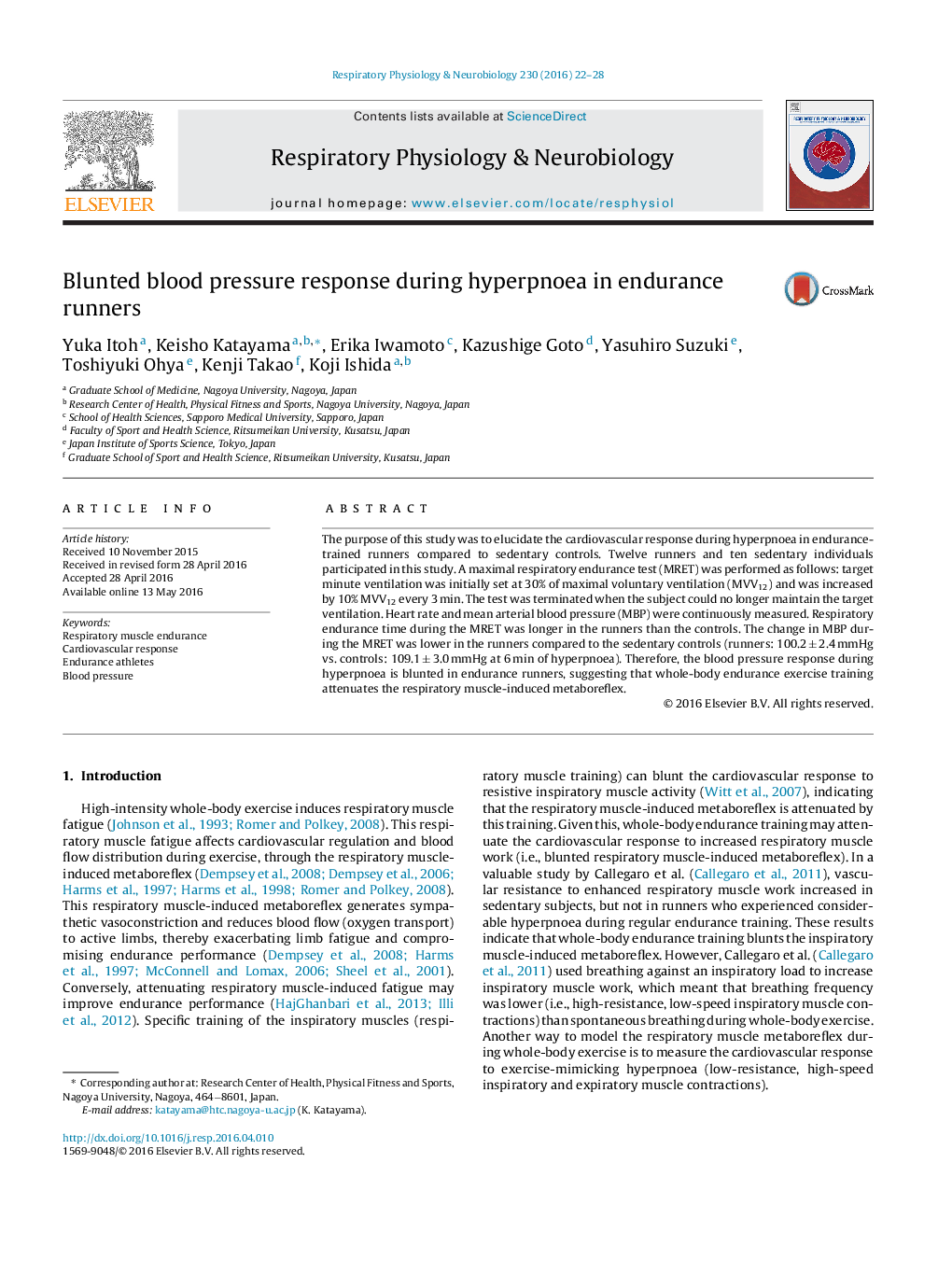| Article ID | Journal | Published Year | Pages | File Type |
|---|---|---|---|---|
| 2846648 | Respiratory Physiology & Neurobiology | 2016 | 7 Pages |
The purpose of this study was to elucidate the cardiovascular response during hyperpnoea in endurance-trained runners compared to sedentary controls. Twelve runners and ten sedentary individuals participated in this study. A maximal respiratory endurance test (MRET) was performed as follows: target minute ventilation was initially set at 30% of maximal voluntary ventilation (MVV12) and was increased by 10% MVV12 every 3 min. The test was terminated when the subject could no longer maintain the target ventilation. Heart rate and mean arterial blood pressure (MBP) were continuously measured. Respiratory endurance time during the MRET was longer in the runners than the controls. The change in MBP during the MRET was lower in the runners compared to the sedentary controls (runners: 100.2 ± 2.4 mmHg vs. controls: 109.1 ± 3.0 mmHg at 6 min of hyperpnoea). Therefore, the blood pressure response during hyperpnoea is blunted in endurance runners, suggesting that whole-body endurance exercise training attenuates the respiratory muscle-induced metaboreflex.
